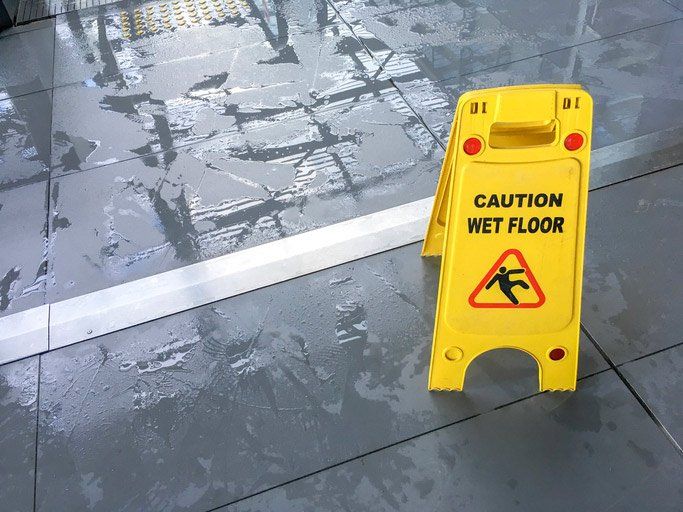PERSONAL INJURY
Zealously Representing You
Experience You Can Trust
Automobile Accidents:
If you or a loved one has been involved in an accident resulting in injury, even the smallest amount of injury, there are certain things you must do to preserve your claim.
How Long Do You Have to Report an Accident?
Usually, drivers will call the police from the scene of the accident and let the officers who arrive file the report for them.
While not all accidents require reporting, we recommend that you call your local police from the scene of the accident just to be on the safe side.
It is also very important to do this immediately if you believe you’ve sustained injuries or experience any discomfort. A police report is needed as evidence to link the accident and your injuries in the event of filing a Florida car accident claim to your insurance company. Also, be sure to seek treatment within 14 days of the accident. If you don’t seek care in time, you won’t have a personal injury case.
Reporting an Accident to Police After the Fact
If for any reason you did not contact the police from the scene, you will need to either:
- Call your local police department and file an accident report
- Self-report online or via mail by completing the following form: https://www.flhsmv.gov/pdf/forms/90011s.pdf
Report Your Car Accident to the Insurance Company
After filing a police report, you should report the car accident to your insurance company. Your insurer most likely requires you to notify them of an accident soon after the event. There are different deadlines for reporting, so you should do this as quickly as possible.
You must not share details of your injuries with the insurance agent. Most importantly, do not state that you haven’t sustained any injuries. Your injuries may show up later and your insurance company will record everything in your initial interaction. This can negatively affect future claims and keep you from receiving the compensation you deserve.
SLIP AND FALL ACCIDENTS
Florida Slip and Fall Laws – What You Need to Know
If you’re hurt in a slip and fall accident in Florida, it’s important to know what slip and fall laws apply in the case. You need to know what laws apply to know if you have a case, whether you will need a Jacksonville slip and fall attorney, and what you can expect to win.
Florida’s slip and fall laws are partly created by the legislature and partially created by the courts through case law. Here’s what you need to know about Florida slip and fall laws.
What Are Florida’s Slip and Fall Laws?
Florida’s slip and fall laws are Florida Revised Statutes 768.0755. The law states that to win a slip and fall lawsuit, the victim must prove that the business failed to remedy a dangerous condition. The victim must also show that the business had actual or constructive notice of the dangerous situation. Florida law allows the victim of a slip and fall to recover for a range of economic and non-economic damages, including medical bills, lost work, and pain and suffering.
Slip and Fall Laws in Florida
Slip and fall laws in Florida are somewhat complex. Florida is only one of a few states that has detailed written slip and fall laws that were passed by lawmakers. The laws say exactly what a victim has to prove to win their case.
What to Prove to Win a Florida Slip and Fall Case
Under Florida laws, to win a slip and fall case, you must prove the following:
- You slipped on a substance
- The fall occurred on someone else’s property
- The substance created a dangerous condition
- The property owner had actual or constructive knowledge of the dangerous condition
- They should have fixed it
- They didn’t fix it
Florida’s law explains that there are a few ways that you can show that the property owner knew or should have known about the dangerous condition. First, you can show that the dangerous situation existed long enough that the owner should have found it. Second, you can show that the dangerous condition happened on a repeated basis so the property owner should have known about it for that reason. Third, you can show that the property owner actually knew about the dangerous condition and had a reasonable amount of time to fix it.

Florida Slip and Fall Common Laws
The written slip and fall laws codified by the legislature in Florida are not complete. No written law could ever cover every possible factual situation and legal wrinkle that could arise in a case. That makes it essential to keep Florida’s common law in mind when you evaluate any slip and fall case. The common law is the law created by judges, one by one, as the issues arise during real cases. The common law adds details like what types of damages you may recover for a slip and fall case. It also explains the statutory law in detail over time.
Florida’s slip and fall statutes are relatively new. So as you read Florida’s court opinions and compare them to your case, remember that a case may not still be relevant. While some court opinions are still good law, other cases are outdated and no longer applicable.
What Is the Statute of Limitations for a Slip and Fall in Florida?
The statute of limitations for a slip and fall in Florida is four years. Florida law 95.11(3)(6) says that the victim of a slip and fall in Florida has four years from the date of the accident to bring their claim. The law applies to all negligence personal injury claims in Florida, including slip and fall cases.
Filing a Lawsuit for Slip and Fall in Florida
Filing a lawsuit for slip and fall in Florida begins with a summons and complaint. The complaint must state the facts of the case and state that the case is based on Florida’s personal injury negligence laws. It’s up to the victim of the injury, also called the plaintiff, to initiate the lawsuit. They initiate the lawsuit by filing their claim in the appropriate court by the deadline. To file a slip and fall lawsuit in Florida, the plaintiff submits their summons and complaint to the appropriate court and pays the filing fee.
Comparative Negligence Slip and Falls Florida
Another important part of slip and fall laws in Florida is the idea of comparative negligence. Comparative negligence is the legal concept that you can share fault for a slip and fall in Florida. The law recognizes that sometimes, both the property owner and the victim can have some responsibility for the accident. Fortunately for slip and fall victims, the law still allows you to recover something even if you’re partially at fault for an accident.
For example, you might slip and fall by tripping over an object that shouldn’t have been in your path. But you might have been running in a place where you should have been walking. In that example, Florida law still allows you to collect compensation for the slip and fall. However, your compensation may be reduced because of your own shared responsibility for the accident. Florida law 768.81 is the comparative negligence law that applies in slip and fall cases.
Contact Our JACKSONVILLE/NORTHEAST FLORIDA Slip and Fall Law Attorneys
When you’ve been hurt in a slip and fall accident, the Gerald Wilkerson, Injury Attorneys legal team can help you understand Florida’s complex laws. Our team has the legal training to understand the statutory laws and common law that apply to the case. We can help you determine what you need to prove to win your case. Then, we help you take action. Our team can take all of the necessary steps on your behalf to ensure that you receive the fair compensation that you deserve for your claim.
A slip and fall case is complex, but you deserve justice. Your call is free. Call us today.
What Constitutes Medical Malpractice In Florida?

Types of Medical Malpractice
Different types of medical malpractice can cause significant injury.
Some examples include:
- Failure to diagnose: This happens when a doctor fails to accurately diagnose a condition for which a patient seeks treatment. The more time that passes between diagnosis and treatment, the more severe an affliction can become.
- Missed laboratory results: If a medical caregiver improperly reads test results, mixes them up with another patient’s, or fails to inform you of its findings, this qualifies as negligence.
- Surgical errors: This can range from a surgery performed on the wrong limb to improperly administered anesthesia.
- Unnecessary surgical procedures:
If your doctor recommends an unnecessary operation that does not treat any of your health conditions, they may be found responsible for your injuries.
- Wrong medications: Should a healthcare provider prescribe you the wrong medication, the wrong dose, or a drug that interacts poorly with your medical history, this can be detrimental to your well-being.
- Insufficient aftercare: Aftercare and follow-up procedures are important aspects of the healing process. If a provider fails to give appropriate aftercare that worsens a health condition, they could be held responsible.
- Not taking accurate patient history:
Taking a thorough and accurate patient history can inform a doctor’s recommended course of care. Failing to review and ask for patient history could put your health at risk.
Other forms of medical malpractice are possible, such as birth injuries. In many cases, medical malpractice could involve several different missteps from a care provider or a hospital. If you face injuries because of the negligence of a medical professional, you may have the right to move forward with a civil action.
For a free legal consultation, call 904-384-8200.
Assigning Liability for Medical Malpractice
It can be difficult to determine liability in some medical malpractice cases. For example, if a caregiver prescribes the wrong dosage of medication to a patient, accountability may rest on multiple parties. Did the doctor prescribe the wrong medication? Did a lab technician misread your test results? Could the pharmacist have filled the script incorrectly? Examining the details of your own negligence case can be exhausting. For this reason alone, many people choose to contract the help of a legal professional.
Statute of Limitations for Medical Malpractice Cases in Florida
The state of Florida classifies medical malpractice as a personal injury claim. These types of cases fall under Florida Statute 95.11, which allows four years from the date when the injury occurred or was discovered.
While this may seem like a long time, the earlier you hire a medical malpractice lawyer, the more time they will have to build your case. The discovery process can take time and includes gathering evidence. As time goes on, memories fade, evidence may become misplaced, and the defendant’s legal team may grow skeptical about the cause of your injuries.
Gerald Wilkerson has practiced law for more than 22 years, and during that time built a strong network of attorneys, experts, and doctors, and if Gerald Wilkerson cannot take on your case personally, he can direct you to the best attorney for your case.

